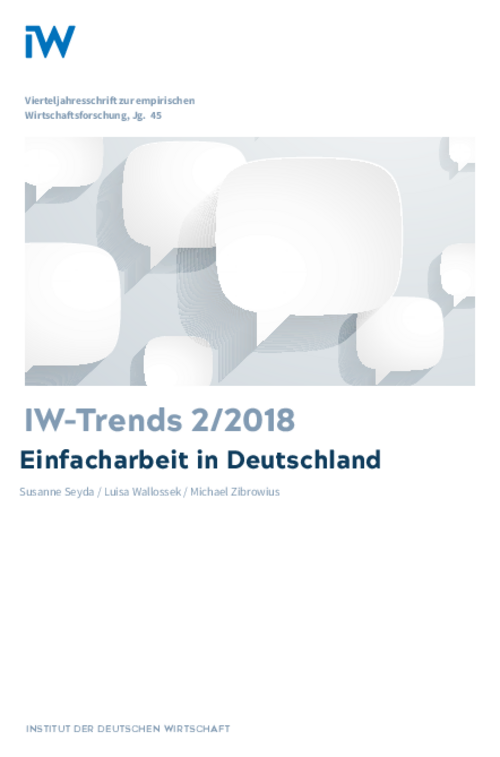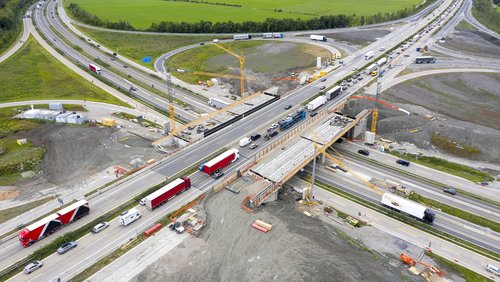The present article examines how the extent and importance of low-skilled work has developed over a period of skill-biased technological change.

An Index Measuring Low-skilled Jobs: Low-skilled Work in Germany
IW-Trends

The present article examines how the extent and importance of low-skilled work has developed over a period of skill-biased technological change.
To this end low-skilled work is captured by means of an index incorporating the knowledge required for a specific occupation, the performance of routine tasks, and whether the work involves autonomy or detailed rules on how it is to be performed. Since 1979 the index has fallen slightly, from 0.30 to 0.28. However, low-skilled work has developed differently for the different levels of qualification: the unskilled and semi-skilled, and to a lesser extent even those who have completed vocational training, are today more frequently affected by low-skilled work than in the past; the highly qualified are less affected. One reason for the relatively small decline in the index value is a significant increase in the number of highly skilled workers and the simultaneous decline in the number of low-skilled workers. Taking into account both the increase in employment and the development towards higher formal qualifications, there are indications that the level of low-skilled work in the economy as a whole is no less than forty years ago. Thus, although globalisation and technological progress in Germany have been accompanied by an increase in the number of those in employment who have higher professional qualifications, there has been no significant reduction in the extent of low-skilled work.

Susanne Seyda / Luisa Wallosek / Michael Zibrowius: Einfacharbeit in Deutschland – Ein Index als Maß für Einfacharbeit
IW-Trends

More on the topic

Challenges for the debt brake
In 2019, Bardt et al. (2019) initially presented a comprehensive estimate of the unmet public investment needs in Germany not covered in household planning at the time, totaling around €460 billion over ten years.
IW
Corporate Insolvencies on the Increase
After a prolonged decline, the number of corporate insolvencies has begun to rise again. The slight increase in 2022 could be interpreted as a step towards normalisation after the sharp drop experienced during the 2020/21 Covid19 pandemic.
IW